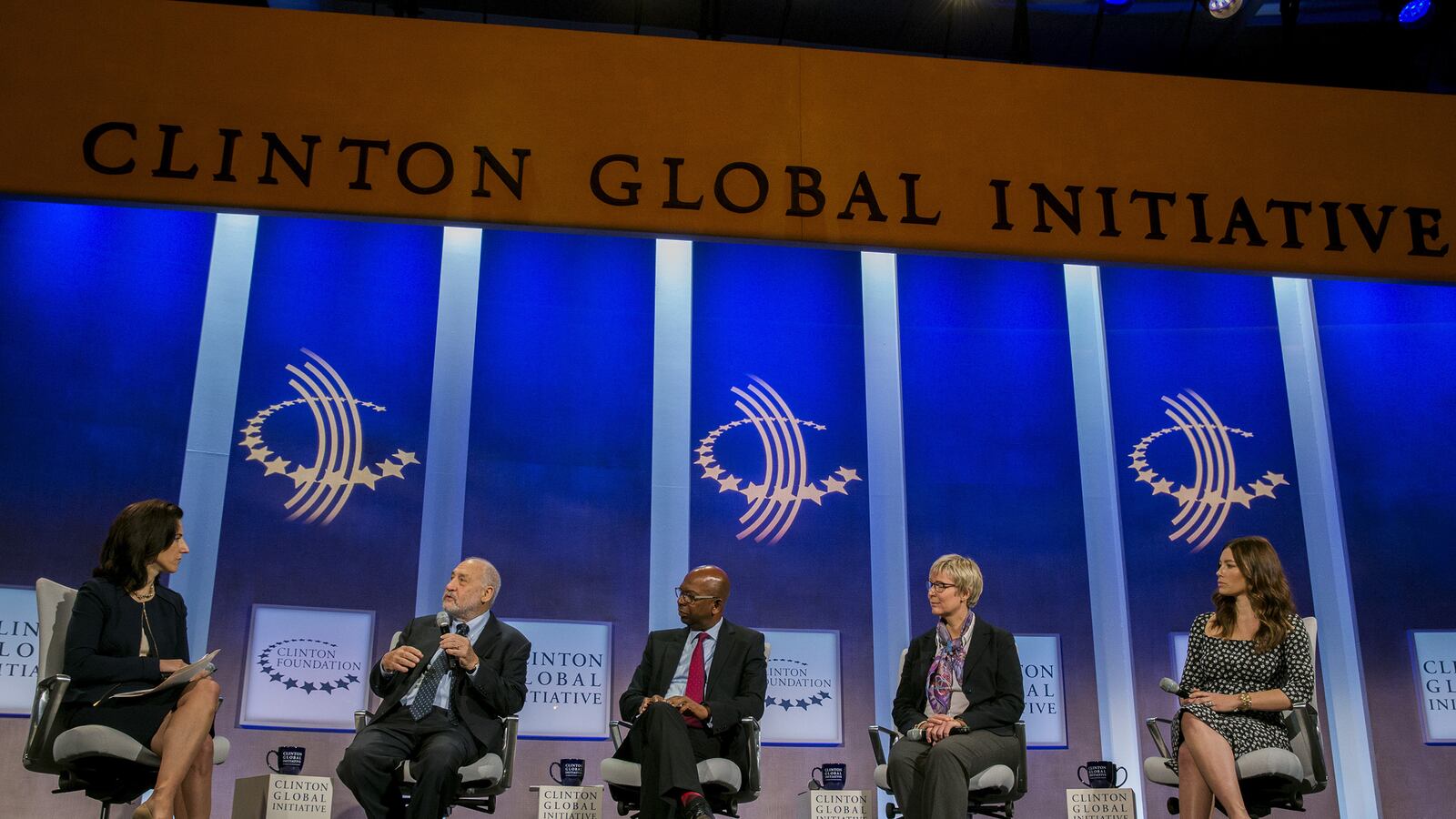On Monday, two intergalactically minded mavericks got together at the Clinton Global Initiative to chat about the future of space innovation, dropping out of college, and President George W. Bush’s legacy.
During Day Two of the annual philanthropic summit in Midtown Manhattan, an effervescent Sir Richard Branson told astrophysicist Neil deGrasse Tyson that he believes the history books will overlook the double-war legacy of President Bush in favor of his work in environmental conservation.
“What is President Bush going to be remembered for?” Branson, the CEO of Virgin Group, asked. “Not the Iraq war, he’s going to be remembered for creating the largest marine reserve in Hawaii.” The billionaire was referring to the 140,000-square-mile sanctuary and three additional monuments that Bush designated in 2006 and 2009.
DeGrasse Tyson seemed to agree, offering another historical example: “Teddy Roosevelt—we think of national parks.”
The move was called the largest conservation effort in history when it was announced, and warmed conservationists to the then-president, even though his early environmental record included pulling out of negotiations for the Kyoto Protocol, a global agreement to limit greenhouse gases. Later, Bush did declare that global warming was caused “in large part [by] human activity.”
Branson was expounding on an idea that he and other so-called “Ocean Elders”—a group of wealthy, environmentally minded powerhouses, including film director James Cameron and oceanic explorer Dr. Sylvia Earle—had come up with. The group plans to fulfill its goal of bumping oceanic protection from 3 percent to 30 percent by 2030 by leveraging its considerable influence on world leaders.
DeGrasse Tyson and Branson also discussed the future of space travel and the reason the eccentric entrepreneur—estimated to be worth $5.1 billion—is keen on getting away from Earth.
“Why wasn’t just airplanes enough for you?” deGrasse Tyson asked. A few moments later he struck upon his answer: “You’re still a kid, that’s what it is.”
(Upon his entry onto stage, before Branson’s arrival, deGrasse Tyson proved himself to be the only person able to make technical difficulties welcome. “I can just tell you about the universe while this is going on,” he offered after an awkward silence, to instant cheers. “Shall I?”)
Branson offered up an explanation of how he transitioned Virgin Atlantic into Virgin Group. “I wanted to go to space; friends of mine wanted to go to space; my children wanted to go into space.”
And so, with a bit of cash, he believes they will. Someday, he hopes, this will include point-to-point travel, where any destination in the world will be accessible with a 45-minute space flight. “It’s a doable step,” Branson said. “Maybe not in my lifetime, but in my children’s lifetime.”
In these early stages, he plans to make space travel accessible in the same way early airlines made international travel feasible: by targeting the wealthy until the influx of money allows prices to drop. “[We will] generate cash from people’s love of being able to do something they dreamt of their whole lives,” he said. “Then anything is possible.”
“That’s how you turn a space program into a space industry,” deGrasse Tyson said approvingly.
The two also agreed that a more galactic view would be a good strategy to build world peace. “I want to donate a round of seats to politicians so they can see Earth from above where there are no national boundaries,” deGrasse Tyson said. He added they would bring them back down to land only once they’d stopped fighting.
“It’s not just a ride to Disneyland, it’s a ride to a cosmic perspective,” he said in closing to Branson. “You’ve got to lead us there.”






